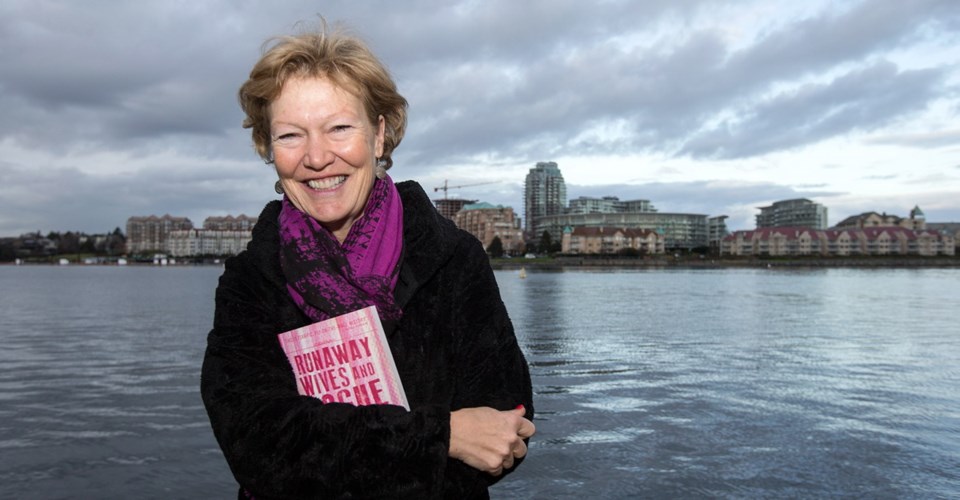What: Book launch of Runaway Wives and Rogue Feminists: The Origins of the Women’s Shelter Movement in Canada
Where: Greater Victoria Public Library Central Branch
When: 7 p.m. Dec. 5, free
More info: gvpl.ca
Journalist Margo Goodhand wrote a book about the pioneers of Canada’s women’s shelter movement in part because she couldn’t find one. “I wanted to write a book and I wanted it to be about women, because history books are always about men,” said Goodhand, a former editor-in-chief of the Edmonton Journal and Winnipeg Free Press who now lives in Victoria.
She launches her new book, Runaway Wives and Rogue Feminists: The Origins of the Women’s Shelter Movement in Canada, at the downtown library branch on Tuesday.
A few years back, Goodhand’s sister Joyce asked her an important question. “She said: ‘What would you do if you had no mortgage, bills to pay or kids [at home]?’ ”
The answer was clear: Write a book. The sisters started talking about what would make a good book and Joyce shared her experiences working in women’s shelters and transition houses.
Goodhand said she was inspired hearing how small groups of women in the early 1970s with no financial or government support fought to open the first shelters for women escaping violence at home — and how that laid the foundation for the 625 shelters and transition houses across the country today. “This is something that needed to be written about because these women are getting older and might not be around to tell the story,” said Goodhand.
She and her sister decided to take a few months off and travel across Canada together in a Dodge Caravan to research the book, tracking down the “rogue feminists” who helped open the country’s first women’s shelters.
“I thought I had some cred as a journalist, but Joyce had more because she had worked in that world,” said Goodhand, who lives at Fisherman’s Wharf.
“The research and women we met were so interesting,” she said. “These were not powerful or prominent women, but they changed everything.”
She tells the story of women like Lorraine Kuzma, who fled an abusive husband with her daughters in Saskatchewan in 1973 and helped start one of the country’s first battered women’s shelters with a small government grant.
At the same time, similar groups of women were starting shelters in Toronto, Edmonton, Aldergrove and Vancouver. It was all happening amid a huge social and political shift toward more rights for women, in Canada and beyond, inspired by the second-wave feminist movement.
Goodhand provides a valuable narrative of that time in our country and how it led to the foundation of many social policies as well as women’s shelters.
One of the women she interviewed for the book was Janet Currie, a former Victoria resident who helped found B.C.’s first women’s shelter, Ishtar Transition House, in 1973 in Aldergrove.
“We were all very much influenced by the feminist thought at the time,” said Currie, who now lives in Vancouver. She said creating safe places for women “seemed like a really important issue. But we had almost no support from the larger community.”
Currie said the idea of women’s shelters was initially controversial. Rumours spread that they were places for secret abortions and they were under police surveillance. But with public awareness and pressure on the government, they got the support they needed to operate — even if it was bare bones. “Our spirits were really good, because we felt were right,” she said.
“We were strategic, too. We had men on our advisory boards and we started doing research about battered women.”
Currie said she wishes the women pioneers of that time were more recognized for their accomplishments, but is too busy still fighting for change to dwell on that — as are the others. “It is really important for younger women to understand our generation and work together,” she said.
Goodhand hopes that her book not only honours the pioneering feminists but inspires new ones. She said the recent movements to address sexual harassment and assault in the entertainment industry and politics has mobilized women in ways not seen in years.
“First, I hope this book celebrates a piece of history that hasn’t been told. I also want younger women to know where we’ve come from to better know where we’re going. That’s important to me.”



